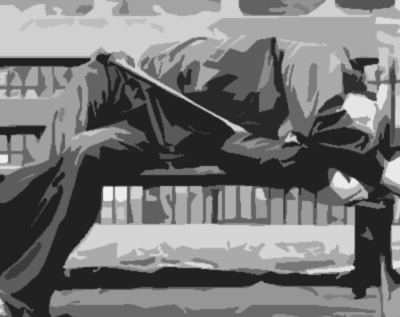< Más Articulos : Sanctuary? City (Times of Israel - 22 Jul 2025)
-
-
Sanctuary? City (Times of Israel - 22 Jul 2025)

They say that if all the money in the world were evenly distributed among everyone, by the next day, some would already have more—and others, less. Human beings are inherently diverse; some are more capable, driven, or resourceful than others. The same applies to communities and nations. This isn’t just a theory—it’s an observable reality.
Throughout history, societies have developed different ways of organizing themselves. Each has created its own code of conduct, legal system, political structure, economic model, infrastructure, education and healthcare systems, housing policies, and immigration laws—in short, the essential components required to run a functioning country. These systems often vary significantly, especially in how they define and protect individual rights and freedoms. These differences shape how collective responsibilities and liberties are understood and enforced.
The World Happiness Index measures how individuals rate their life satisfaction, typically on a scale from 0 to 10. According to the latest data, the ten happiest countries are: Finland, Denmark, Iceland, Sweden, the Netherlands, Costa Rica, Norway, Israel, Luxembourg, and Mexico. Conversely, the ten least happy include: Afghanistan, Sierra Leone, Lebanon, Malawi, Zimbabwe, Botswana, the Democratic Republic of the Congo, Yemen, Comoros, and Lesotho. (See the full listing at: https://data.worldhappiness.report/table.)
Among the 25 happiest countries, 16 are in Europe, five in North and Central America, two in Oceania, and two in Asia. Notably, none of the 54 African nations, 46 Asian countries, or 33 Latin American countries (except Mexico and Costa Rica) appear in the top tier.
This is no coincidence. Countries that consistently rank highest in happiness have invested for decades in the well-being of their citizens—through education, healthcare, social trust, and transparent institutions. In contrast, the least happy countries often lack the governance, infrastructure, and stability necessary to foster quality of life.
A similar pattern exists at the city level. Some cities have been more disciplined and forward-thinking, investing heavily in infrastructure, regulations, and public services to improve living conditions. These improvements often come at a cost—typically through higher taxes and more rigorous urban planning.
It’s no surprise, then, that people living in less prosperous or poorly managed cities seek to relocate to those that offer a better quality of life. Historically, such migration has been accepted—so long as newcomers respected and complied with local laws and norms.
However, in recent years, some well-intentioned yet deeply naive politicians in the world’s happiest countries and cities have developed a sense of guilt over their relative prosperity. In an attempt to offer others a better life, they have opened the doors to massive flows of illegal immigration—often at the expense of the very citizens who worked for generations to build these societies. Instead of raising newcomers to the local standard, these policies have started to erode that standard, forcing the native population to share in the hardships brought by unregulated migration.
Worse still, among these large waves of illegal immigrants, dangerous individuals have infiltrated the flow and successfully entered sanctuary countries and cities, where they now have the opportunity to carry out harmful agendas.
Some of these individuals are terrorists seeking to operate from within once-peaceful societies. Others act as modern-day cultural colonizers, gradually reshaping the communities they enter by imposing their own values and way of life. In many cases, Muslim immigrants have exemplified this trend in various cities across Europe and the United States, where local traditions and populations are increasingly being displaced.
Sanctuary cities, in this context, represent the surrender of once-thriving communities—built through generations of sacrifice, discipline, and tax contributions—to unsustainable immigration policies. The cost is being borne by the very people who made that prosperity possible.
Times of Israel - Jul 22 2025
https://blogs.timesofisrael.com/sanctuary-city/
( Por: Yehudi Sabbagh , 22/07/2025 )
